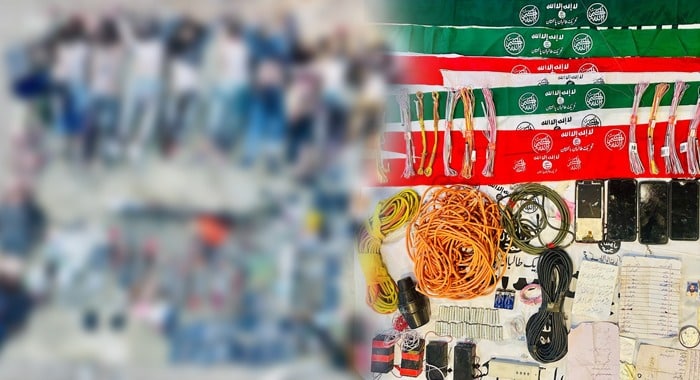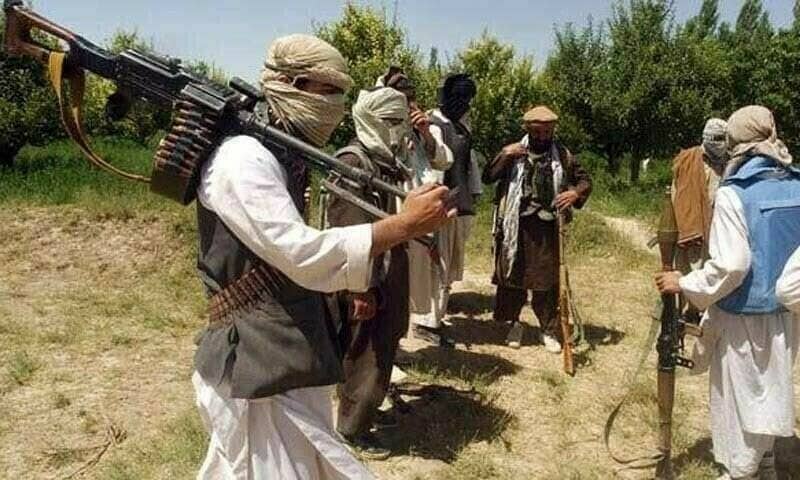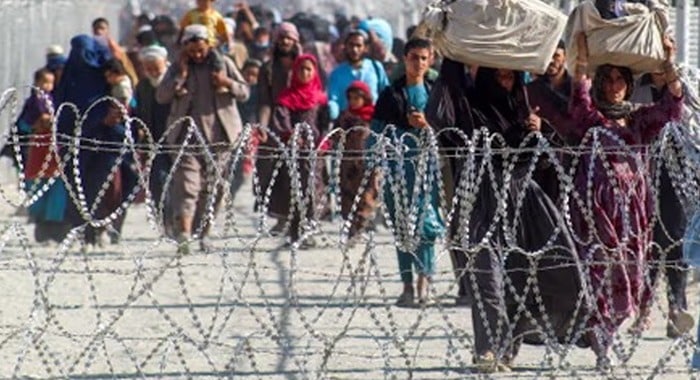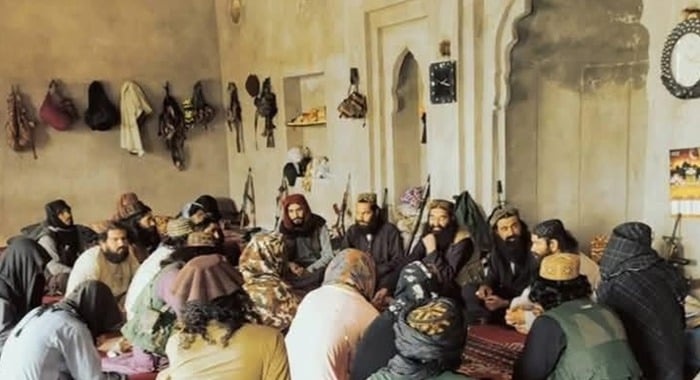Security forces have successfully thwarted a major infiltration attempt by a group of Indian-backed khawarij along the western border, recovering a large cache of weapons, explosives, and extremist propaganda material in the process. The group, believed to consist of 35–40 khawarij, attempted to cross into Pakistan earlier this week.
According to security officials, 30 khawarij were killed during the operation including Najeeb Paraky who was a highly-valued khariji commander, while 10 bodies were recovered from the site. Some of the bodies were retrieved by their fleeing comrades, but forensic evidence, including blood trails and equipment, confirms higher casualties.
Weapons & ammunition recovered include 1 x SPG-9 recoilless gun; 1 x RPG-7 rocket launcher with ammunition, 8 x sub-machine guns and shotguns with magazines and ammo, 13 x hand grenades, 30 x UBGL (under-barrel grenade launcher) rounds, 1 x optical scope and 1 x “Longot” (improvised long-range firing device).
Besides, explosives and IED equipment recovered were 25 fully prepared IEDs; Equipment for manufacturing 50 IEDs, 3 bundles of detonating cord, 2 bundles of safety fuse and explosives, and 60–70 detonators.
Apart from this 20 x TTP flags; 15 x Special Qita (elite militant unit) headbands, 6 x smartphones and SD cards, and likely containing operational data and communication logs were also confiscated.
Authorities suspect the group had planned large-scale terror attacks using the recovered IEDs and heavy weapons. The presence of propaganda material, including TTP flags and militant headbands, suggests these elements were part of a structured campaign to escalate violence in the region.
Intelligence sources confirmed that the infiltration was guided and supported by cross-border handlers. Intercepts and digital chatter monitored by national security agencies further validated these connections.
The operation marks a significant success in the fight against terrorism, not just in neutralising a major threat, but also in disrupting the logistical chain that enables such groups. Investigations are ongoing to trace back the origin of the recovered equipment and digital material, and to identify the handlers and facilitators within and outside the country.
The recovered explosives, especially the 25 ready-to-deploy IEDs, could have caused mass casualties if not intercepted in time, a reminder of the constant threat posed by foreign-backed anti-state actors and the urgent need for continued vigilance.





